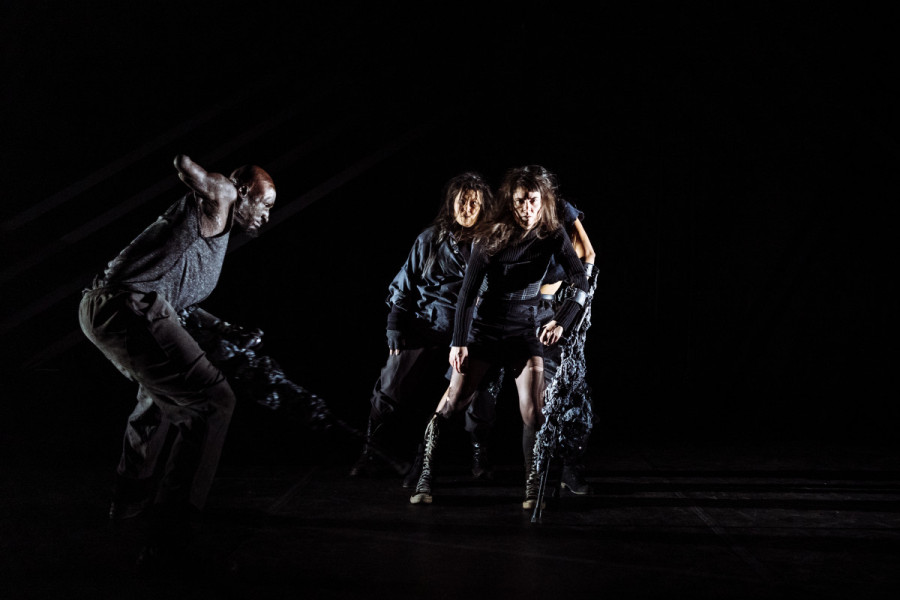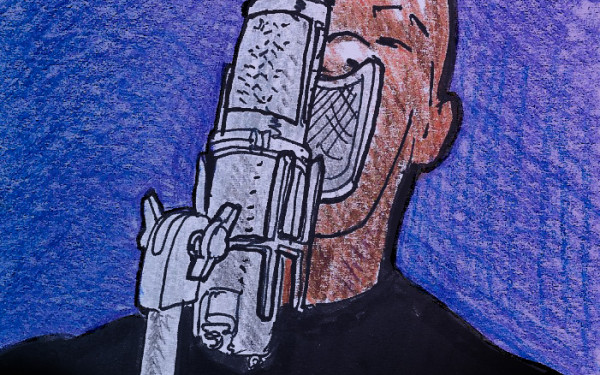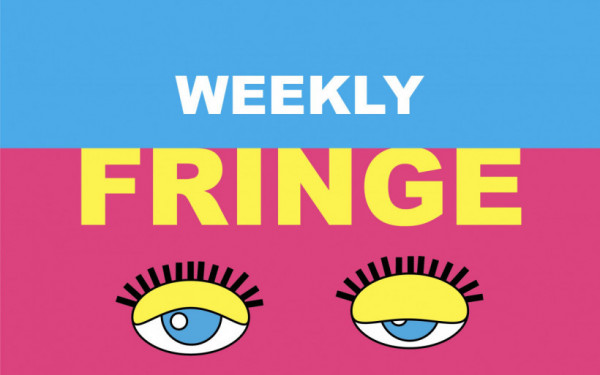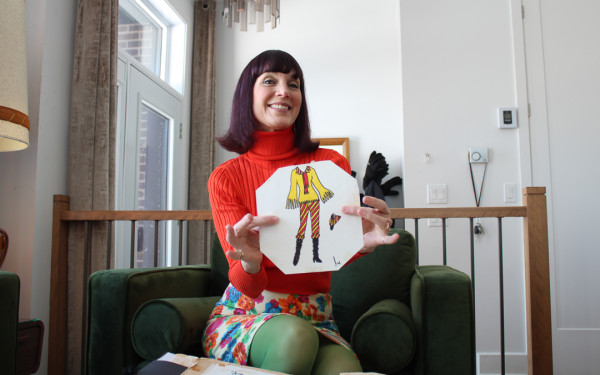‘Jonathan: A Seagull Parable’ uses drama and dance to explore the limits and freedoms of community, identity, and physicality
The Geordie Theatre production takes inspiration from Richard Bach’s original book
In his newest play, writer and director Jon Lachlan Stewart takes inspiration from Richard Bach’s allegory of Jonathan Livingston Seagull, and brings it to life in a unique onstage reinterpretation titled Jonathan: A Seagull Parable.
The play questions the idea of the limits and freedoms that comes with being part of a community. The production also features a cast where half the actors have a physical disability. Jonathan: A Seagull Parable is playing at the Geordie Theatre until Dec. 11.
Jonathan the seagull is tired of being told what to do by his father and the rest of his flock, so he tries to learn to fly differently. Labeled as an “alternate flyer” and exiled from his flock for being different, he learns a lesson about independence, as well as community. Eventually he returns to his flock and tries to teach them the same lessons he has learnt along his journey.
Stewart has been interested in the story of Jonathan Livingston Seagull since he was 10 years old. He spoke about how it’s one of those stories that has a really different context as you grow older.
“What [my younger self] took away was that it’s this story that champions individuality, our expressions of ourselves, who we are, and freedom. And it ends very well,” he said.
But now that he’s older, the story means something a little different to him.
“[The story] has a very bitter feeling to it. This feeling that actually it’s very difficult, and it feels sometimes frustrating and impossible to arrive at a place where people can talk together and just listen to one another, and that society is sort of this cycle that sort of keeps repeating,” said Stewart.
Read more: ‘Blackity’ sheds light on the disparities of representation in Black Canadian art

A prominent part of Jonathan the seagull’s story is how his desire to fly faster, higher, and more efficiently than the rest of the flock affects his relationship with his father, who is the leader of their flock.
“I'm really interested in this relationship we can all sort of relate to on some level of the family who raised us as a sort of microcosm for this metaphor about society, [which includes] the people we need to break away from and change, but then we need to come back to and learn from again,” said Stewart.
When asked about the process of working with differently abled actors, Stewart said he learned a lot about artists simply wanting to be artists, and about the way they express autonomy and authority on stage.
“If you start using the prosthetic limb as a symbol, or start using it in an aesthetic way that you find interesting, there’s a lot of politics in what it is for a person living with a disability to remove their prosthetic and put attention to it in a dance or an aesthetic way,” he said.
“We want to make sure that we’re representing young people as much as we can in our stories, and we’re making things relatable.” — Jimmy Blais
During the show, the actors use a crutch as their wing, and there’s even a moment when an actor removes their prosthetic to symbolize this idea of a wing folding in two to be able to fly faster. Stewart said there was originally a narrator that described this scene as it played out, but something about that felt wrong. “It was about the character taking control of the choice, as opposed to somebody from the outside telling them to do this thing,” said Stewart.
Jimmy Blais, the artistic director at Geordie Theatre, explained the production’s alignment with the company’s values when it comes to providing entertaining theatre for youth and general theatre goers. “We want to make sure that we're representing young people as much as we can in our stories, and we're making things relatable. We're sparking conversation surrounding topics that affect them in their everyday [lives],” said Blais.
Jonathan: A Seagull Parable has a strong theme of independence that a lot of young people can relate to, especially those who have just left home or are finding their way in the world. Stewart’s own experience with his family and upbringing is part of the inspiration behind why he wanted to tell this story.
“I'm frustrated sometimes about the family that raised me and where I come from, and how they feel. We sometimes have this idea when we grow up that we need to break away from our families and discover who we are in order to raise children and help them be better for the future, but it's a bit more complicated than that,” said Stewart. He suggests that instead of completely rejecting where we come from, we need to reconcile with it and learn from it.

The pandemic has created an obvious challenge in making audiences feel safe to return to in-person theatre. More specifically, Blais spoke on the challenge of encouraging young people to come see live theatre when they’re so used to digital forms of entertainment.
“The pandemic has done something for the theatre industry, which has forced us to think about different ways in which we can produce theatre,” said Blais. Some of these alternatives included live streaming shows or filming productions. Geordie theatre participated in the trend of virtual performances during the pandemic, including a performance of Virginia Wolf written by Cole Lewis.
“Having that content digitally ready, and being able to plug it into things like social media, or collaborating with a social media influencer to be able to pull in some of that digital audience is definitely something that a lot of companies are looking at right now,” he said.
Another value Geordie theatre focuses on is trying to provide a space for underrepresented communities to share their stories. “We’re doing another show in January called Other Worlds, which is a collective creation amongst Geordie and the Summit School, a school in Montreal that provides education to neurodiverse students, or students who are on the spectrum,” Blais added.
On the opening night of Jonathan: A Seagull Parable, audience member, theatre director, and dramaturg Harri Thomas explained how they felt about the performance. “I thought [the show] was really great. I loved it’s deconstruction of the hero’s journey and it’s exploration of overused archetypes. The set design was great as well,” they said.
“[I encourage everyone] to come see the show for the rare kind of casting that we never get to see on stage, but also for the deconstructive, kind of weird story that you can get into,” said Stewart.






